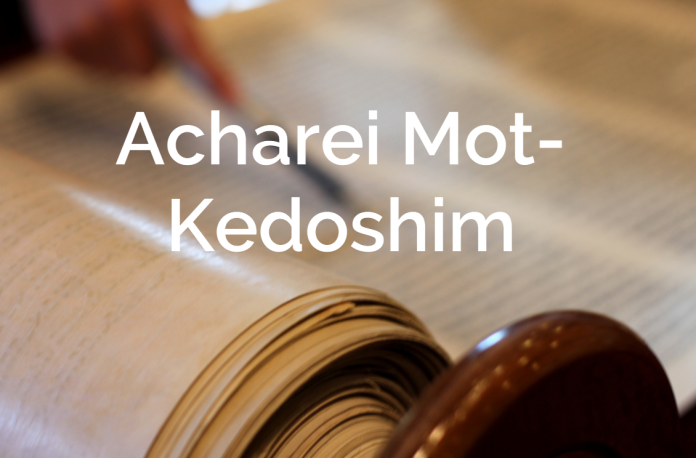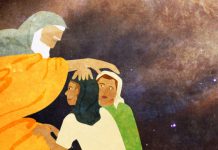Parashat Acharei Mot and Parashat Kedoshim are two Torah portions that are read together during the Jewish calendar. The former focuses on the aftermath of the death of Aaron’s two sons, Nadav and Avihu, while the latter centers around Hashem’s commandment to the Jews to be holy, as He is holy.
The Significance of Parashat Acharei Mot
One of the most notable sections of Parashat Acharei Mot is the prohibition against eating blood, as Hashem tells Moses, “For the life of the flesh is in the blood, and I have assigned it for you upon the altar to provide atonement for your souls; for it is the blood that atones for the soul” (Leviticus 17:11). This is a reminder to the Jews that life is sacred and must be treated with respect.
The parsha also details the procedures for the Yom Kippur service, which is the holiest day of the Jewish calendar. This serves as a warning to the Jews to approach Hashem with reverence and respect.
Parashat Kedoshim: The Holiness Code
Parashat Kedoshim is often referred to as the “Holiness Code,” as it contains a number of commandments related to leading a holy life. Hashem commands the Jews to be holy, saying, “You shall be holy, for I, Hashem your God, am holy” (Leviticus 19:2). This means that the Jews are to strive for moral purity and ethical behavior in all aspects of their lives.
Specific Commandments for Holiness
The parsha contains a number of specific commandments related to this goal of holiness. For example, Hashem commands the Jews not to oppress their fellow human beings or hold grudges, saying, “You shall not hate your brother in your heart… you shall love your neighbor as yourself” (Leviticus 19:17-18). Additionally, the parsha prohibits certain types of behavior, such as idol worship and sexual immorality.
Sharing with Others
One of the most well-known commandments in Parashat Kedoshim is the requirement to leave the corners of fields unharvested for the poor. Hashem tells the Jews, “When you reap the harvest of your land, you shall not completely reap the corner of your field… you shall leave them for the poor and for the stranger” (Leviticus 19:9-10). This commandment serves as a reminder to the Jews to be mindful of those in need and to share their resources with others.
Maintaining Boundaries
Another notable section of Parashat Kedoshim is the prohibition against mixing different kinds of seeds or animals. Hashem tells the Jews, “You shall not sow your field with a mixture of seeds, nor shall you wear a garment made of two different materials” (Leviticus 19:19). While this may seem like a strange commandment, it serves as a reminder that the Jews are to maintain boundaries and distinctions between different aspects of life.
Living a Life Centered around Hashem’s Commandments
Overall, both Parashat Acharei Mot and Parashat Kedoshim emphasize the importance of living a life that is centered around Hashem and His commandments. The former serves as a warning to approach Hashem with reverence and respect, while the latter provides a roadmap for leading a life of moral purity and ethical behavior. As the Jews continue to follow these commandments, they strive to be a holy people, in accordance with Hashem’s will.
In conclusion, Parashat Acharei Mot and Parashat Kedoshim provide valuable insights into the Jewish faith and its teachings. These Torah portions emphasize the importance of living a life centered around Hashem’s commandments and striving for holiness and moral purity.
By following the commandments contained in these Torah portions, the Jews are reminded of their connection with Hashem and their obligation to lead a life of ethical behavior and respect for others. Through their commitment to these teachings, the Jews are able to uphold the traditions of their faith and pass them down to future generations.
In essence, Parashat Acharei Mot and Parashat Kedoshim serve as a reminder to the Jews of their sacred duty to uphold the values of their faith and live a life that is centered around Hashem’s will. By doing so, the Jews continue to be a holy people, worthy of Hashem’s blessings and protection.












